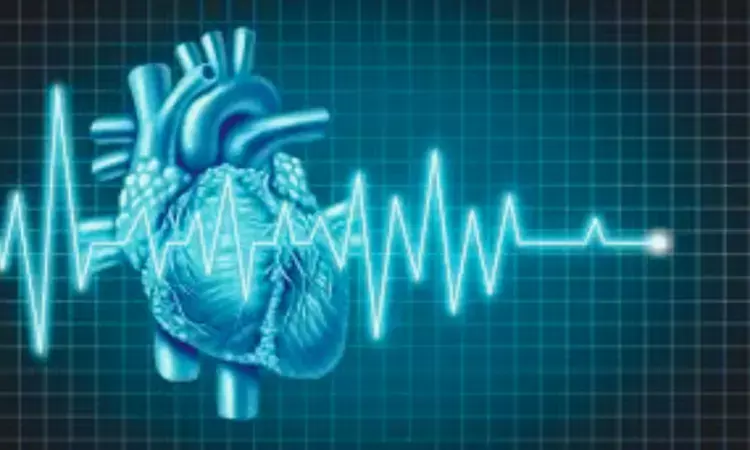- Home
- Medical news & Guidelines
- Anesthesiology
- Cardiology and CTVS
- Critical Care
- Dentistry
- Dermatology
- Diabetes and Endocrinology
- ENT
- Gastroenterology
- Medicine
- Nephrology
- Neurology
- Obstretics-Gynaecology
- Oncology
- Ophthalmology
- Orthopaedics
- Pediatrics-Neonatology
- Psychiatry
- Pulmonology
- Radiology
- Surgery
- Urology
- Laboratory Medicine
- Diet
- Nursing
- Paramedical
- Physiotherapy
- Health news
- Fact Check
- Bone Health Fact Check
- Brain Health Fact Check
- Cancer Related Fact Check
- Child Care Fact Check
- Dental and oral health fact check
- Diabetes and metabolic health fact check
- Diet and Nutrition Fact Check
- Eye and ENT Care Fact Check
- Fitness fact check
- Gut health fact check
- Heart health fact check
- Kidney health fact check
- Medical education fact check
- Men's health fact check
- Respiratory fact check
- Skin and hair care fact check
- Vaccine and Immunization fact check
- Women's health fact check
- AYUSH
- State News
- Andaman and Nicobar Islands
- Andhra Pradesh
- Arunachal Pradesh
- Assam
- Bihar
- Chandigarh
- Chattisgarh
- Dadra and Nagar Haveli
- Daman and Diu
- Delhi
- Goa
- Gujarat
- Haryana
- Himachal Pradesh
- Jammu & Kashmir
- Jharkhand
- Karnataka
- Kerala
- Ladakh
- Lakshadweep
- Madhya Pradesh
- Maharashtra
- Manipur
- Meghalaya
- Mizoram
- Nagaland
- Odisha
- Puducherry
- Punjab
- Rajasthan
- Sikkim
- Tamil Nadu
- Telangana
- Tripura
- Uttar Pradesh
- Uttrakhand
- West Bengal
- Medical Education
- Industry
Acetazolamide ups rate of successful decongestion in acute decompensated heart failure, regardless of renal function: ADVOR trial

Belgium: Findings from the ADVOR trial have revealed the safety and efficacy of acetazolamide for treating congestion across the entire range of renal function; more pronounced beneficial effects are seen in patients with a lower estimated glomerular filtration rate (eGFR).
The researchers also revealed that acetazolamide treatment raises the risk of worsening renal outcomes during the treatment phase, which does not portend adverse outcomes as long as decongestion is achieved. The study findings were published online in the European Heart Journal.
Previous studies have shown that about 50% of patients with heart failure have chronic kidney disease (CKD), defined as eGFR< 60 mL/min/1.73 m2, which is linked with an impaired diuretic response. In such patients, achieving decongestion becomes a more arduous task. Additionally, worsening renal function (WRF), assessed by an increase in serum creatinine, is shown in up to 20%–40% of patients with acute decompensated heart failure (ADHF). Although highly prevalent, few trials have investigated diuretic strategies in patients with impaired renal function.
In the ADVOR trial in which 82% of patients had CKD, adding acetazolamide to standardized IV doop diuretics improved diuretic efficacy in patients with ADHF and volume overload, leading to a higher incidence of successful decongestion and shorter hospital stay.
In the ADVOR trial, acetazolamide improved decongestion in ADHF. There is no clarity on whether the beneficial effects of acetazolamide are consistent across the entire range of renal function. Additionally, limited information is available about the acetazolamide effect on renal function and the potential prognostic meaning of these treatment-induced alterations. Therefore, Wilfried Mullens, Hasselt University, Universiteitslaan, Diepenbeek, Belgium, and colleagues conducted a pre-specified subanalysis addressing these questions.
In the pre-specified analysis of the ADVOR trial, the researchers randomized 519 ADHF patients to IV acetazolamide or matching placebo on top of intravenous loop diuretics. The primary endpoints of diuresis, decongestion, clinical outcomes, and natriuresis are assessed according to baseline renal function. Renal function changes were evaluated between treatment arms.
The study led to the following findings:
- The median estimated glomerular filtration rate (eGFR) was 40 mL/min/1.73 m²on admission.
- Acetazolamide consistently increased the likelihood of decongestion across the entire spectrum of eGFR.
- Natriuresis and diuresis were higher with acetazolamide, with a higher treatment effect for patients with low eGFR.
- Acetazolamide was associated with a higher incidence of worsening renal function (WRF; rise in creatinine ≥ 0.3 mg/dL) during the treatment period (40.5% versus 18.9%), but there was no difference in creatinine after three months. This was not associated with a higher incidence of heart failure hospitalizations and mortality.
- Decongestion at discharge was associated with a lower incidence of adverse clinical outcomes, irrespective of the onset of WRF.
"The findings showed that acetazolamide is linked to a higher rate of successful decongestion across the entire range of renal function; more pronounced effects regarding natriuresis and diuresis were seen in patients with a lower eGFR," the researchers wrote.
"While worsening renal function occurred more frequently with acetazolamide, this was not associated with adverse clinical outcomes," they concluded,
Reference:
Meekers E, Dauw J, Martens P, Dhont S, Verbrugge FH, Nijst P, Ter Maaten JM, Damman K, Mebazaa A, Filippatos G, Ruschitzka F, Tang WHW, Dupont M, Mullens W. Renal function and decongestion with acetazolamide in acute decompensated heart failure: the ADVOR trial. Eur Heart J. 2023 Oct 1;44(37):3672-3682. doi: 10.1093/eurheartj/ehad557. PMID: 37623428.
Dr Kamal Kant Kohli-MBBS, DTCD- a chest specialist with more than 30 years of practice and a flair for writing clinical articles, Dr Kamal Kant Kohli joined Medical Dialogues as a Chief Editor of Medical News. Besides writing articles, as an editor, he proofreads and verifies all the medical content published on Medical Dialogues including those coming from journals, studies,medical conferences,guidelines etc. Email: drkohli@medicaldialogues.in. Contact no. 011-43720751


